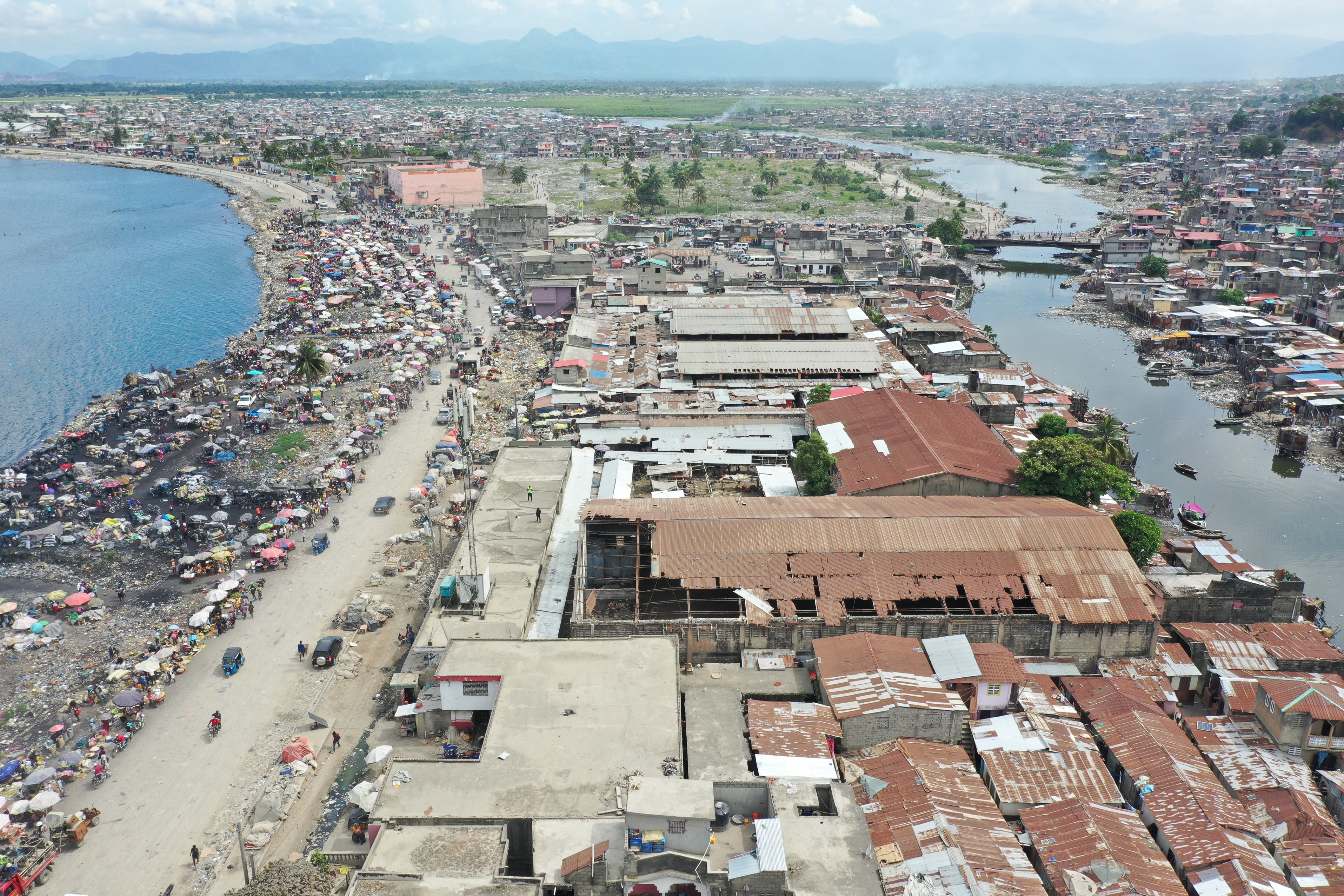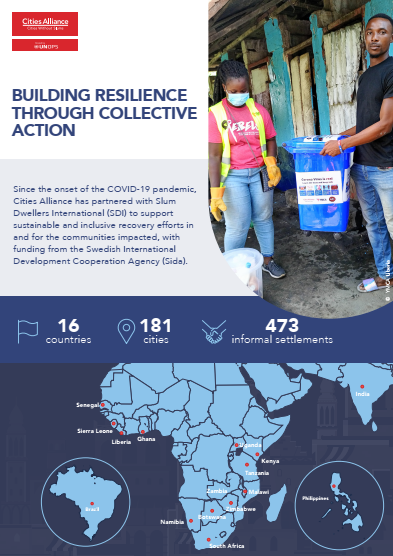- Who We Are
- How We Work
- Regional / Country Initiatives
- Legacy
- Core Themes
- Working Groups
- Portfolio & Results
- Newsroom
- Resources
Profile of the Pont Neuf Market in Cap-Haïtien, Haiti

Report on the results of the diagnostic studies carried out under the LAVIL programme at Pont Neuf Market located in Cap-Haïtien, Haiti.

The ‘Ansanm Ann Chanje Lavil’ initiative – LAVIL for short – supports the improvement of municipal service delivery in selected municipalities with a view to obtaining long-term, sustainable local economic development in Haiti.
In its initial phase, LAVIL focuses on public markets – multifunctional spaces that play a vital role in the local economy and promote social cohesion, but that local governments find difficult to manage effectively. LAVIL promotes sustainable management of public markets by stimulating local solutions for basic services, with an emphasis on solid waste management, co-creating spaces for multi-stakeholder dialogue and capacity-building within municipal governments.
LAVIL is funded by the United States Agency for International Development (USAID) and implemented by Cities Alliance in partnership with the municipalities of Cap-Haïtien and Les Cayes, the Association for Volunteers in International Service (AVSI) foundation, Habitat for Humanity Haiti, the Institute for Housing and Urban Development Studies (IHS) and the Institut de Formation et de Services (IFOS - Institute of training and services).
In Cap-Haïtien, the Marché Pont Neuf (Pont Neuf Market) was chosen to take part in the pilot phase of the project. Diagnostic studies were conducted to provide an overall understanding of the market and the capacity of local government to fulfil its role in managing the space.
This publication, available in English and French, reports on the results of these studies.
The diagnostic work involved collecting primary and secondary data. Several methodologies were used: document review, observations, surveys and meetings with various stakeholders (in particular traders), focus groups, questionnaires, interviews with key informants and participation in local forums on solid waste, water and sanitation.
In order to best present the results of the studies, a systemic approach focusing on five interdependent themes
- Governance: The management of the Pont Neuf Market is characterized by fragmented and complex regulations, worsened by issues of security, racketeering, hygiene, and waste collection. The informal and inconsistent payment systems reduce traders' compliance and heighten insecurity in certain areas of the market.
- Environment: The Pont Neuf Market is exposed to soil and water pollution, frequent flooding, and seismic risks. These environmental issues, worsened by poor wastewater and solid waste management, pose significant risks to public health and the integrity of the market's infrastructure.
- Citizenship: The Pont Neuf Market is an important socio-economic center for the city of Cap-Haïtien, but traders have little influence over its management and lack confidence in the authorities. Despite a low perception of security, community cohesion remains strong, supported by local organizations and cultural practices.
- Services: The Market faces critical challenges in solid waste management, access to drinking water, inadequate sanitation facilities, and a lack of electricity. These deficiencies impact public health and the environment in and around the market.
- Economy: The Pont Neuf Market is a major economic centre for the city of Cap-Haïtien. However, merchants primarily rely on informal credit and are often in debt. Although most products are locally sourced, financial challenges and the lack of structured support limit the merchants' economic growth.

